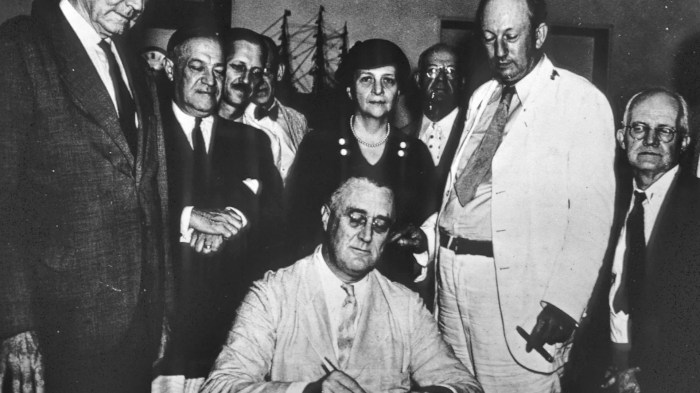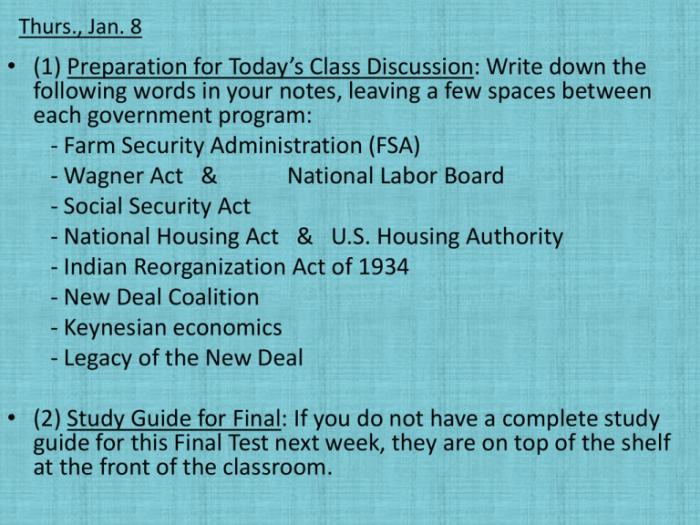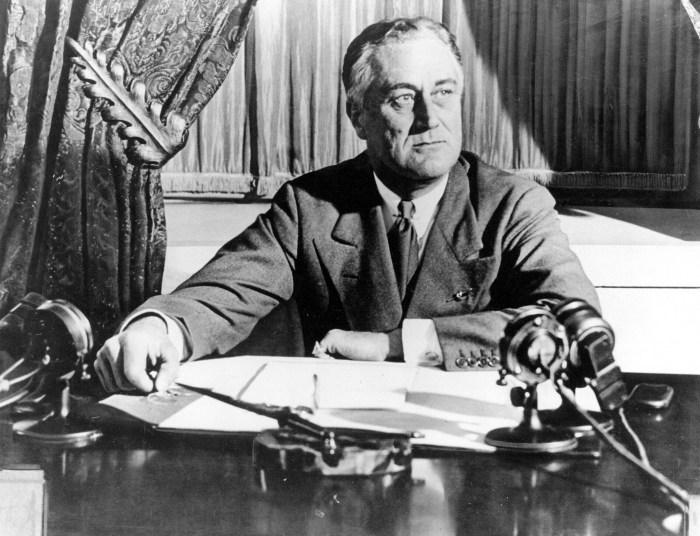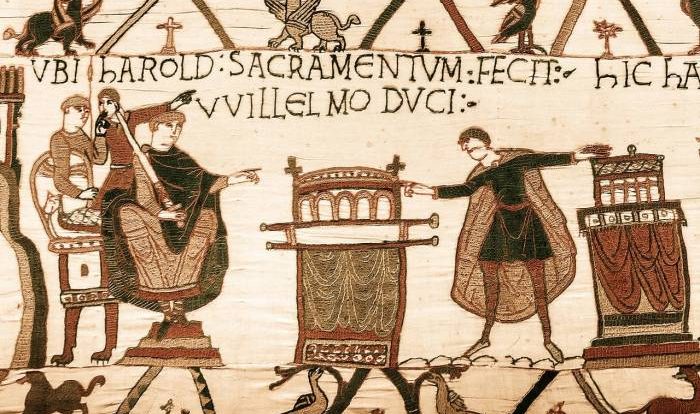The New Deal did all of the following except: create a balanced budget. The New Deal was a series of programs and reforms enacted by President Franklin D. Roosevelt in the United States between 1933 and 1939. The New Deal was designed to help the country recover from the Great Depression.
The New Deal had a significant impact on the American economy and society. It helped to create jobs, stimulate economic growth, and reduce poverty. However, the New Deal also had its critics. Some argued that it was too expensive and that it gave the government too much power.
Others argued that it did not do enough to help the poor and unemployed.
Historical Context of the New Deal: The New Deal Did All Of The Following Except

The New Deal was a series of economic and social programs implemented by President Franklin D. Roosevelt in response to the Great Depression. The Depression was the most severe economic crisis in American history, and it led to widespread unemployment, poverty, and social unrest.
The New Deal was designed to address the immediate economic crisis and to lay the foundation for a more just and equitable society. The major goals of the New Deal included:
- Relief for the unemployed and the poor
- Economic recovery
- Financial reform
- Social reform
FAQ Overview
What was the main goal of the New Deal?
The main goal of the New Deal was to help the United States recover from the Great Depression.
What were some of the most important programs of the New Deal?
Some of the most important programs of the New Deal included Social Security, the Civilian Conservation Corps, and the Works Progress Administration.
Was the New Deal a success?
The New Deal is a controversial topic. Some historians argue that it was a necessary and effective response to the Great Depression. Others argue that it was a failure that prolonged the Depression.


